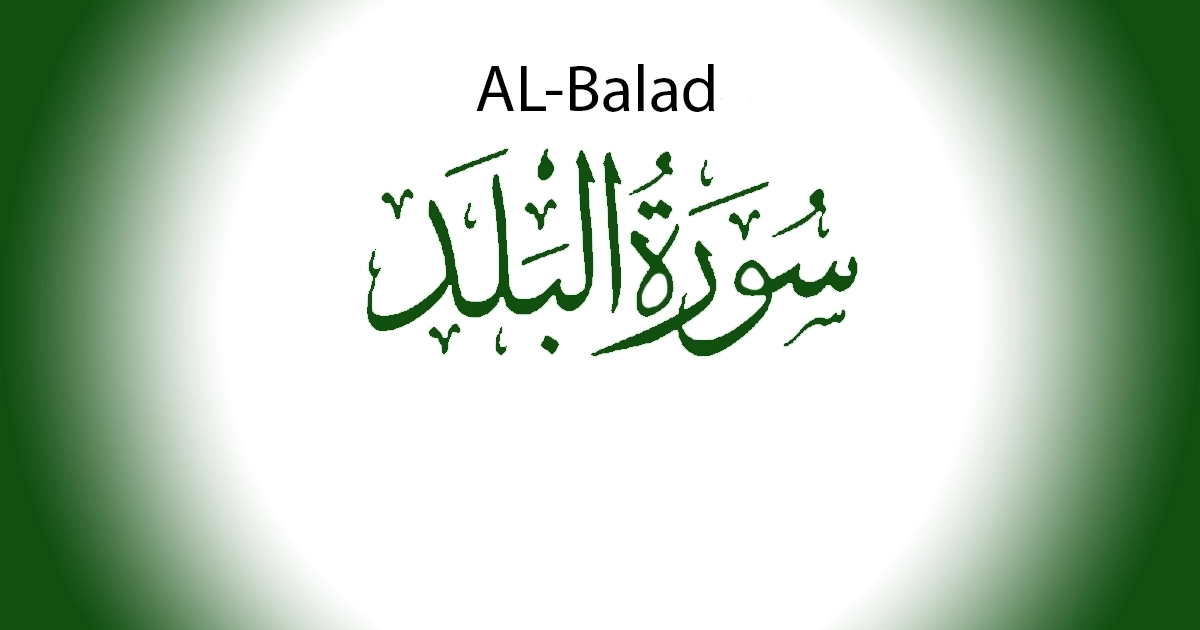- Canada, USA, UK And Worldwide
- onlinedaralquran@gmail.com
Our Social Media :

Download MP3 and PDF of Surah Al-Balad With English Translation
Surah Al-Balad, the 90th chapter of the Holy Qur’an, reflects deeply on the challenges and moral responsibilities associated with human existence, particularly within the context of urban life. Comprising 20 verses, this Surah emphasizes the importance of justice, compassion, and social responsibility.
Revelation and Context
Surah Al-Balad was revealed in Mecca during a time of great social and economic inequality, where the wealthy often oppressed the poor and marginalized. The Surah addresses these injustices and calls for ethical conduct, emphasizing the value of compassion and solidarity within the community.
The Oath by the City of Mecca
The Surah begins with an oath by the city of Mecca, symbolizing its significance and the responsibilities of its inhabitants:
“I swear by this city, and you are a freeman of this city.” (Qur’an 90:1-2)
These verses draw attention to the sanctity of Mecca and the ethical obligations incumbent upon its residents. They serve as a reminder of Allah’s blessings and the moral imperatives associated with living in a community.
The Creation of Humanity
Surah Al-Balad reflects on the creation of humanity and the potential for moral excellence:
“We have certainly created man in hardship.” (Qur’an 90:4)
This verse acknowledges the challenges inherent in human existence and underscores the importance of resilience and perseverance in facing adversity. It encourages believers to empathize with the plight of others and strive for justice and equity in society.
The Path of Righteousness
The Surah contrasts the paths of righteousness and wrongdoing:
“Or the feeding on a day of severe hunger, an orphan of near relationship, or a needy person in misery.” (Qur’an 90:14-16)
These verses highlight the importance of charity, compassion, and social responsibility. They emphasize the rewards for those who alleviate the suffering of others and promote social justice within their communities.
Conclusion
Surah Al-Balad is a powerful reflection on the challenges and moral responsibilities associated with human existence, particularly within the context of urban life. It calls on believers to uphold justice, compassion, and social responsibility, emphasizing the importance of empathy and solidarity within communities. Through its ethical teachings and moral imperatives, this Surah serves as a timeless reminder of the ethical obligations inherent in human relationships and community life.


